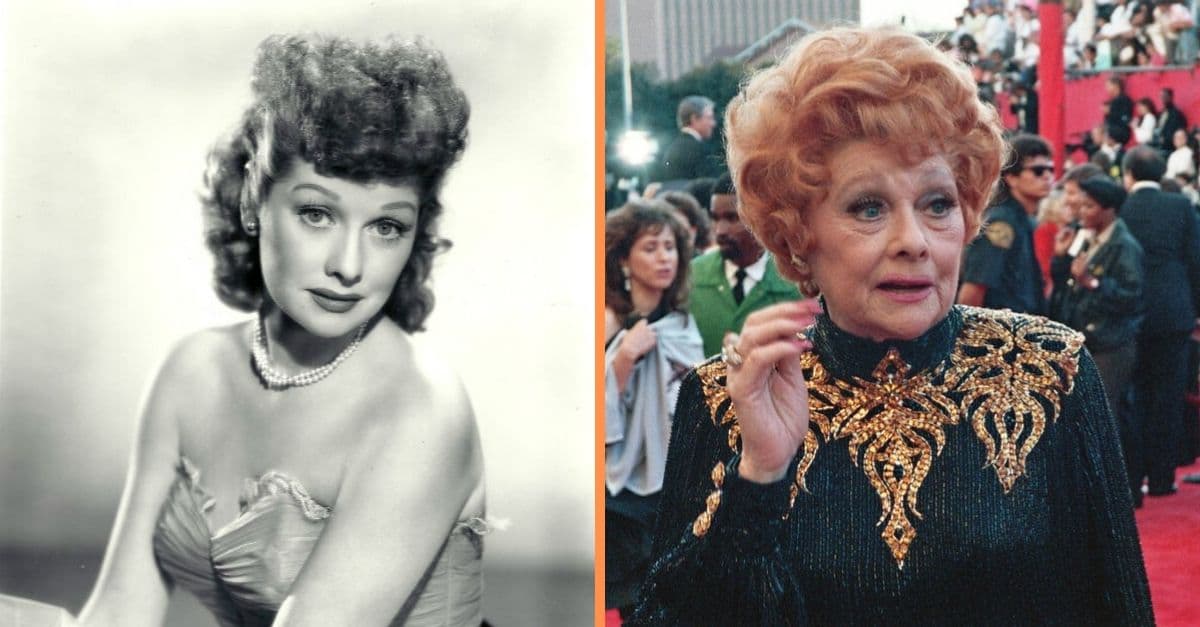
Lucille Désirée Ball had Americans rolling in their seats with laughter everywhere she went. Most people saw her as the star of I Love Lucy where she got up to hijinks, each more ridiculous than the last. But even though at one time, I Love Lucy was the most-watched show in America, there is another side of Lucille Ball (one our 50 Fabulous People of the 1970s) people never saw. Let’s peer behind the curtain of laughter and outward contentedness at the real life of Lucille Ball.
One of TV’s most iconic housewives actually had a dramatic family life herself. All the tension began when she was just a teenager and it was enough to throw her entire world off its axis. As an adult, Ball had to keep fighting still. She fought for her own happiness and for the equality and respect of others. She was more than an actress and comedian. She was also a champion.
At only 16, Lucille Ball lost it all
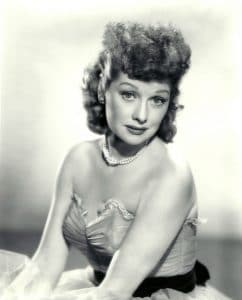
Circumstances made Lucille Ball’s life turbulent very early on. She lost her father from typhoid fever, when she was just three years old. When it came to raising Lucille and her brother Freddy, like many families, Ball’s mother had help from her grandparents. Though things seemed to calm down when her mother remarried, the family would soon face another catastrophic loss. On July 4, 1927, Ball’s grandfather came home with a mysterious package wrapped in brown paper. Inside sat a gun. The kids were excited to try out using the weapon and Ball’s grandfather watched over them shoot at tin cans in the backyard. It was all fun, fun, and games until the weapon unexpectedly went off and next thing everyone knew, their young neighbor Warren was bleeding in the bushes.
RELATED: The Real Reason Lucille Ball Cast Desi Arnaz On Her Show
The boy was alive. But he was left paralyzed from the bullet severing his spinal cord. Ball’s grandfather was ready and willing to pay medical bills. But Warren’s family had bigger demands and pursued a lawsuit. The boy’s family won and Ball’s family lost absolutely everything. She watched everything that made her house a home disappear – not just furniture, but her grandfather’s very spirit and drive. He never worked again. Of that one incident, she would later say, “it destroyed our life together there.” And, it was true. The family lost all their furniture, their happiness, and a grandfather in one huge blow.
Ball made waves whenever necessary
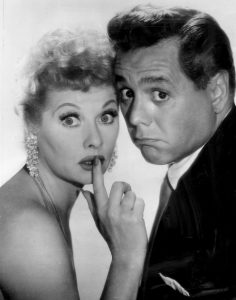
Lucille Ball did not just face turbulence; she sometimes caused it, and at the most important of times. Things were different when she was growing up and building her career. Segregation was in full force and anyone who broke the status quo risked causing a scandal. Today, ancestry is a fun topic for chitchat and hobbyists. Back then, it built barriers. That’s why the idea of a British-Irish lady being with a Cuban man was positively unthinkable, especially on TV. But Lucille Ball, who built herself a lot of power behind the scenes, had her mind made up. When her radio show did particularly well, CBS wanted Ball to develop it for TV. Ball agreed but set a condition: she wanted to work alongside her real-life husband Desi Arnaz, a Cuban-American actor, musician, and producer.
CBS executives weren’t so keen on the idea. They felt American audiences wouldn’t be comfortable with seeing a mixed couple on their screens. Reluctantly, though, they agreed; the show got the green light and got a pilot episode. At first, CBS didn’t love the pilot, but the couple didn’t lose steam there, and when they launched a traveling vaudeville act, they proved CBS’s fears completely wrong when audiences fell in love with them.
Something wicked this way comes
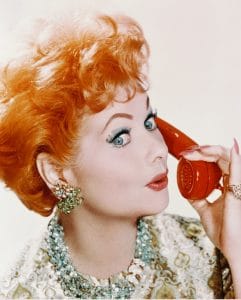
Some of you might associate withcraft with Bewitched star Elizabeth Montgomery, or Sabrina Spellman. But actually, Lucille Ball is worth a mention too. There’s certainly something magical about her. While today we can think that with innocent fondness and admiration, centuries ago things like that were dangerous. That was certainly the case for Ball’s ancestors, who had the misfortune of being connected with one of the most incredible moments in early American history.
NPR revealed as much, writing “A lot of celebrated Americans, it has been determined, were descended from the accused witches, including Walt Disney, Clara Barton and Lucille Ball.” She’s certainly in impressive company, as someone with ancestors tied to that scary time. The Salem Witch Trials of colonial Massachusetts upended countless lives. People rushed to outrageous conclusions driven by fear, and that fear proved deadly for many innocent people. To hear that Ball’s ancestors faced this baseless persecution is terrifying to think about. But it gets even more remarkable when you realize she got caught up in America’s newer witch trials of the 1950s.
“Baby’s a Red” … sort of
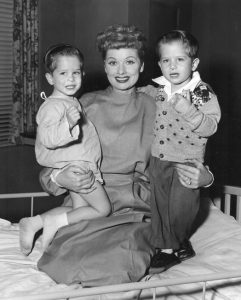
America faced a Red Scare twice. The first was after World War I, the second after World War II. Most people are more familiar with the second red scare because of McCarthyism. Because artists and entertainers could build big followings, they became targets in the Second Red Scare, lest they use their influence to subvert American values. Lucille Ball, a registered communist, was seemingly caught red-handed.
Campaigns against many others were turned into a spectacle more often than not. Fortunately for Ball, she fell into the latter category. As the summer of 1953 drew to a close, Ball was brought forth to meet privately with investigators. She confirmed she did indeed register under the communist party but denied being an active member or voting for a candidate. The testimony of America’s favorite ambitious and zany housewife contained 27 pages. And, as she recalled, her grandfather continued to impact her life. She explained registering as a Communist, “because grandpa wanted all of us to.” She said she simply had to, quote, “to appease an old man.” And even her husband Desi Arnaz would remember seeing the old man reading editorials from the Daily Worker. The incident certainly didn’t impact J. Edgar Hoover’s opinion on I Love Lucy, which he declared his “favorites of the entertainment world.”
Things are not always as they seem
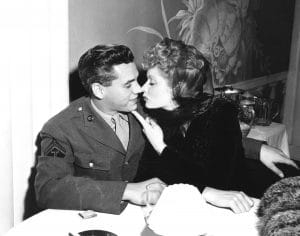
Though he defended her in that trying time, husband Desi Arnaz was a volatile partner. Pinpointing the status of their marriage can be…tricky. Ball herself called it a “nightmare” that in no way matched the chipper fun shown on I Love Lucy. But the two would later talk respectfully of one another, even after separating. When things were bad, though, it often came from Arnaz’s unfortunate lifestyle choices. He was a notorious womanizer who, when not eyeing a new conquest, eyed another bottle of alcohol. On TV, viewers saw a fun couple that set the bar for all of married America; they had no idea that both husband and wife had their pitfalls.
Lucille Ball wanted to keep it that way. She endured Arnaz’s alcoholism in private. Remarkably, part of this was because…of love. One thing everyone consistently recalls about the two is that they did share love between each other.
Lucille Ball struggled to establish a family
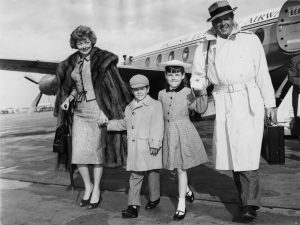
Arnaz did apparently ease some of his bad behavior under certain circumstances. But this relief would also mark some periods of utter heartbreak for Lucille Ball. Longtime friend Lillian Briggs Winograd told People, “Lucy had two or three miscarriages before she gave birth to little Lucie.” Ball wanted them to be parents. Perhaps fatherhood would draw Arnaz back down to earth, change his perspective of the world. But, like so many times already, Ball would have to face loss along the way. When Lucille Ball did have children, though, she made history.
At the time it was out, I Love Lucy wasn’t allowed to say the word “pregnant.” That was a bit of a problem since both the character of Lucy and Lucille herself were actually pregnant. Noticeably so. They got around this one by instead saying she was expecting. And so Lucille Ball became the first pregnant woman to play a pregnant woman on TV. The whole thing caused a great scandal and, in traditional Lucille Ball fashion, totally reshaped the landscape of TV into what we know it as today. Those children who helped Lucille Ball make history are Lucie and Desi Jr., both of whom built careers similar to their parents. Despite this closeness, the struggling couple did break up but she found love with stand-up comedian Gary Morton. Even this, however, brought on hardships, as she was older than Morton and so Morton was called a golddigger.
I Love Lucille Ball’s inspiring legacy
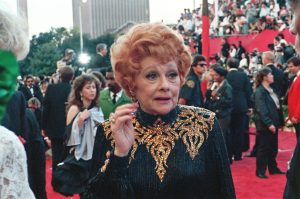
Today, it’s easy to take some TV commonalities for granted. But people like Lucille Ball established a lot of trends first. Not everyone gets their big break immediately in life, and it’s easy to be discouraged by that. We like to think stuff has to happen big and fast or it’ll never happen at all. So, we limit ourselves. But Lucille Ball proved this is absolutely not the case. The iconic, groundbreaking hit I Love Lucy didn’t take off until Ball was 40.
All stories must come to a close, even ones as utterly remarkable as that of Lucille Ball’s. She was a woman of strengths and flaws, public successes and private hurdles. While she helped shape so much of TV into what we know today, she did not always make the best health choices. Her lifetime of smoking made her susceptible to heart problems, and this culminated in pains. On April 26, 1989, Lucille Ball complained of intense back pain and fell unconscious. She never awoke. At the age of 77, Ball passed away from a ruptured abdominal aortic aneurysm. This was not tied to the incident earlier in April, but rather to her smoking habits. Her ashes remain at Lake View Cemetery in Jamestown, New York, which also houses the remains of her parents, grandparents, and brother.
